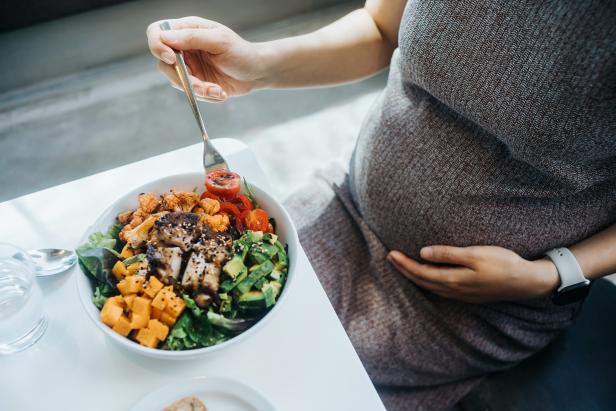More Fiber, Mom! Low Fiber Diets During Pregnancy May Cause Brain Function Delays
Here’s why pregnant women need to add this “brain food” to every meal.


d3sign
Pregnant women are given a long list of foods they should avoid eating during their pregnancy. From raw and undercooked meat and fish to alcohol and too much caffeine, all of these options could be harmful to mom and baby.
However, according to a recent study, there’s one food that a mom-to-be should make sure is on her plate at every meal — fiber. Adding fiber to your diet helps regulate blood sugar and keeps you feeling fuller for longer. Researchers from the study say if you’re pregnant, eating more fiber can help boost your baby’s brain development.
The study, published in the Journal Frontiers in Nutrition, compared the development of children whose mothers who consumed larger amounts of fiber to those of mothers who ate less fiber during their pregnancy.
The study, which was conducted in Japan, included 76,000 mothers and infants, found the children whose moms ate the least amounts of fiber were more likely to show neurodevelopmental delays. Researchers say the delays affect a variety of areas: communication, movement, coordination, problem-solving, and personal-social skills.
"Most pregnant women in Japan consume far less dietary fiber than what is the recommended intake," said study leader Kunio Miyake. "Our results show that nutritional guidance for pregnant mothers is crucial to reduce the risk of future health problems for their children."
The recommended daily dietary fiber intake for women in Japan is 18 grams, but in the United States it’s 28 grams. However, according to the American Heart Association, dietary fiber intake for adults in the United States is about 15 grams a day. That's about half the recommended amount.
Researchers are hopeful that the results of this study will encourage OBGYNs and other health care providers to talk to pregnant women about their diets and upping their fiber intake . With so many benefits to mom’s health and her baby’s development, this brain food can easily be incorporated into so many meal options.
What foods are packed with fiber?
Fruits:
- Raspberries
- Pear
- Apple with the skin
- Banana
- Orange
- Strawberries
Veggies:
- Green peas
- Broccoli
- Turnip greens
- Brussels sprouts
- Potato with the skin
- Sweet corn
- Cauliflower
- Carrot
Legumes, nuts, and seeds:
- Split peas
- Lentils
- Black beans
- Baked beans
- Chia seeds
- Almonds
- Pistachios
- Sunflower kernels
Grains:
- Whole wheat Spaghetti
- Barley
- Bran flakes
- Quinoa
- Oatmeal,
- Brown ric
- Whole wheat and rye bread
YOU MIGHT ALSO LIKE:















